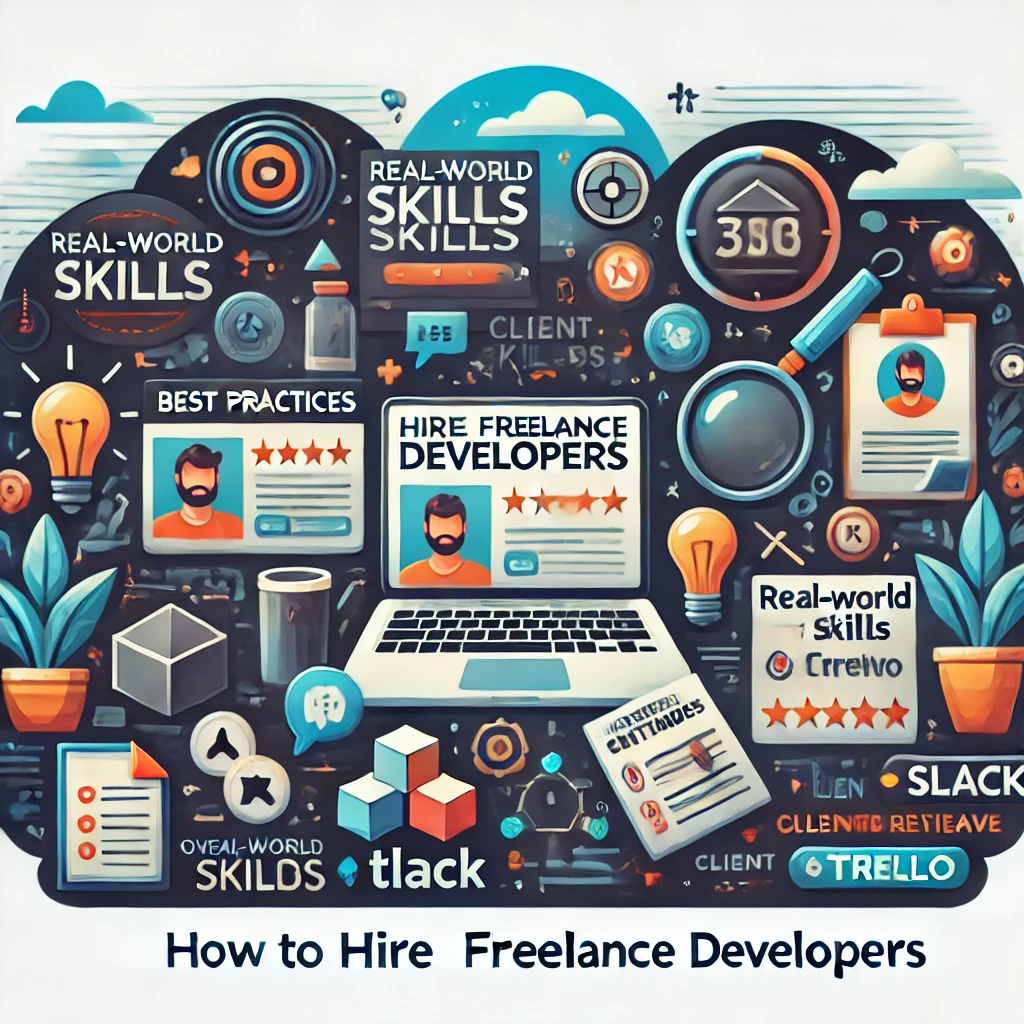How to Evaluate Freelance Developers for Your Business: A Comprehensive Guide


Hiring freelance developers has become a game-changer for businesses looking to scale quickly and efficiently. Whether you’re a startup aiming for rapid growth or an established business seeking specialized skills for a short-term project, freelancers provide the flexibility and expertise you need—without the lengthy hiring process of full-time employees.
However, evaluating a freelance developer is very different from hiring a traditional employee. Unlike full-time hires, freelancers don’t have an onboarding or training period—they must hit the ground running and deliver results immediately.
At Mandarix, we specialize in helping companies hire and assess top-tier development talent. This guide will walk you through the key skills to evaluate when hiring a freelancer, as well as the common mistakes to avoid in the selection process.
Freelancers bring speed and efficiency to the hiring process, but they also require a different evaluation strategy. Unlike full-time employees who receive training, mentoring, and ongoing evaluations, freelance developers are expected to:
✔ Work independently and deliver results quickly
✔ Handle project-based work with minimal supervision
✔ Communicate effectively across different time zones
✔ Manage their own deadlines and quality control
For businesses, this means you can’t rely on traditional hiring methods like aptitude tests or college credentials when evaluating a freelance developer. Instead, focus on real-world skills, experience, and client feedback.
When hiring freelance software developers, the right evaluation process can save you time, money, and headaches. Here are the four most important skills to assess:
Freelance developers don’t get a training period, so they must be immediately proficient in the required technologies. This means that evaluating technical skills is a top priority.
✔ Assess their coding ability in relevant languages (JavaScript, Python, PHP, etc.)
✔ Review their past projects, GitHub repositories, and portfolio
✔ Conduct a short, project-based coding test that reflects real-world tasks
Pro Tip: Instead of theoretical coding tests, assign a small real-world task relevant to your project. This ensures that the freelancer can apply their skills in a practical way.
Unlike in-house employees, freelancers work remotely, making clear and efficient communication a necessity.
✔ Can they explain technical concepts clearly to non-technical stakeholders?
✔ Do they respond promptly and professionally to messages?
✔ Can they document their work so other team members can understand it?
💡 Red Flag: If a freelancer struggles to communicate clearly during the interview, they may cause collaboration issues down the road.
Freelancers must be highly self-disciplined, as they won’t have a manager checking in daily. Experienced remote developers should:
✔ Be proactive in managing deadlines and updating progress
✔ Have a track record of working on remote projects
✔ Know how to collaborate using remote-friendly tools like Slack, Trello, and GitHub
💡 Pro Tip: Ask candidates how they’ve handled missed deadlines, unexpected challenges, and working across time zones in previous remote projects.
The best way to predict a freelancer’s performance is by checking their past client feedback and portfolio.
✔ Look for testimonials on platforms like Upwork, Toptal, or LinkedIn
✔ Request direct references from previous clients
✔ Examine their portfolio for complexity, attention to detail, and problem-solving ability
💡 Pro Tip: Reach out to one of their past clients to ask about their reliability, communication, and ability to meet deadlines.
While assessing freelance developers, avoid these common pitfalls:
Many companies use coding aptitude tests to evaluate developers, but these often don’t reflect real-world ability.
❌ Aptitude tests measure interview preparedness—not actual development skills
❌ Freelancers excel when assessed on real-world project execution, not theory
❌ A better approach is to assign a small, paid test project
💡 Instead of aptitude tests, focus on past projects, portfolio work, and live coding exercises that mirror your actual project needs.
❌ A developer’s college degree doesn’t guarantee coding ability
❌ Freelancers should be judged on experience, not where they studied
❌ Many top freelance developers are self-taught or have alternative education
💡 Instead of college degrees, evaluate:
✔ Their portfolio and past projects
✔ Their ability to solve real-world coding problems
✔ Their client references and reliability
Now that you know what skills to look for and mistakes to avoid, here’s a step-by-step hiring process to ensure you find the right freelance developer for your business:
Before starting the hiring process, make sure you can answer:
✔ What specific skills and technologies do you need?
✔ What is the scope and timeline of your project?
✔ Is this a short-term or long-term freelance engagement?
Where you find your developers matters. Use high-quality talent platforms that vet their freelancers, such as:
Instead of theoretical coding challenges, assign a short, real-world project that:
✔ Tests their technical ability in the required programming language
✔ Assesses problem-solving and debugging skills
✔ Measures efficiency and code quality
Since freelancers work remotely, ensure they:
✔ Can communicate effectively via email, Slack, or video calls
✔ Have prior experience handling remote projects
✔ Are proactive in managing their work and deadlines
Always:
✔ Review their portfolio for past work quality
✔ Ask for direct client references
✔ Check freelance platform reviews (if applicable)
Hiring the right freelance developer is not just about technical skills—it’s about finding someone reliable, communicative, and experienced in remote work.
✅ Prioritize real-world skills over aptitude tests
✅ Evaluate communication and remote work experience
✅ Use client references and past work as key hiring indicators
✅ Source talent from high-quality freelancer platforms
At Mandarix, we help businesses find and evaluate the best freelance developers for their needs.
🚀 Need help hiring the right developer? Contact Mandarix today!